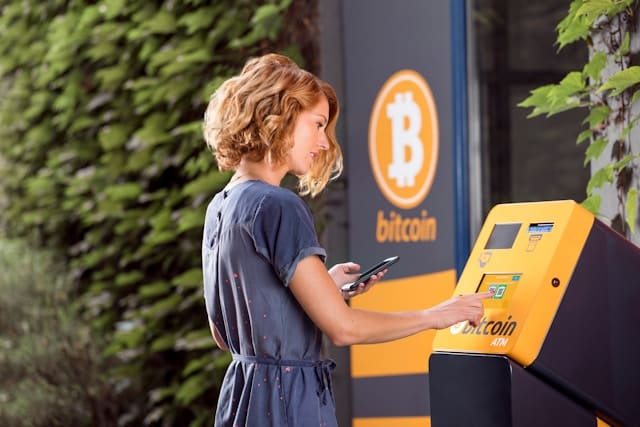Spokane has made history as the first city in Washington state to completely ban cryptocurrency kiosks, following a unanimous vote by the city council on Monday. The decision comes after a sharp increase in scams targeting vulnerable residents, particularly seniors and low-income families who have lost millions through fraudulent schemes involving these machines.
The ban affects roughly 50 crypto ATMs scattered throughout the city at convenience stores, gas stations, and major retailers, including Safeway and Walgreens. Operators now have 60 days to remove their equipment or face civil penalties and potential loss of business licenses.
A Growing Problem in Low-Income Areas
Council member Paul Dillon, who proposed the measure, pointed out that these machines often appear in corner stores located in poorer neighborhoods. The pattern has become increasingly clear to local officials, and that is that crypto kiosks have transformed into what Dillon calls “pipelines for scammers” who prey on unsuspecting victims.
The timing of this ban aligns with broader trends in cryptocurrency adoption, as investors continue to explore new crypto coins 2025 offerings while authorities work to separate legitimate investment opportunities from fraudulent schemes. This situation underscores why investors need to stick with established exchanges and trusted platforms when buying cryptocurrency, rather than using unregulated kiosks that offer little consumer protection.
Detective Tim Schwering from the Spokane Police Department has been tracking these cases for months. He told the council that money deposited into these kiosks frequently ends up in countries like China, North Korea, and Russia.
Safe Investment Practices
The ban of crypto kiosks in Spokane points to a valuable lesson for anyone interested in crypto, and that is the importance of using legitimate platforms and doing deep research before investing. While these ATMs can be convenient for many, they are missing key security features and regulatory oversight that are found on established exchanges like Binance or Coinbase.
When investors wants to join in on a legitimate crypto project they should pay attention that they do it through reputable platforms that have clear fee structures, good customer support, and compliance with local laws. They should never make purchases based on online hypes, unsolicited phone calls or other kinds of high-pressure tactics.
How Scammers Operate
Unfortunately, the fraud tactics have become disturbingly sophisticated. Scammers typically impersonate law enforcement officers or IRS agents, convincing victims they need to “protect their money” by converting it to cryptocurrency at a kiosk. In some cases, they threaten jail time if the victim doesn’t comply, creating a sense of urgency that bypasses rational thinking. On other occasions, fake romances are to blame as one Australian woman sent more than $280,000 to a fake online boyfriend.
Once someone feeds cash into these machines, the money vanishes immediately. Unlike traditional banking systems, cryptocurrency transactions can’t be reversed or traced through conventional channels, which makes recovery nearly impossible.
National Scope of the Problem
The FBI’s data reveals the massive scale of this issue. Americans alone lost more than $5.6 billion in 2023 due to crypto-related frauds. Washington state alone accounted for nearly $142 million of these losses.
The numbers for 2024 paint an even grimmer picture. The FBI received almost 11,000 complaints related to crypto ATM scams, representing a 31% increase from the previous year. Total losses reached $246 million, with two-thirds of victims being over 60 years old.
Following Minnesota’s Lead
Spokane’s action follows similar moves by Stillwater, Minnesota, which passed the first known ban in April. Several other Minnesota jurisdictions are considering similar measures, but Spokane beat them to implementation, making it the first in Washington state to take this step.
The city initially hoped for state-level regulation and asked the Legislature to adopt guidelines around crypto kiosks in December. However, when those proposals stalled without action from state lawmakers, Spokane decided to move forward with its own local measures.
What Happens Next
The ordinance requires operators to remove all kiosks within city limits over the next 60 days. Failure to comply will result in civil infractions and potential business license revocation.
The Spokane Police Department will provide regular reports to the city council on whether the ban has a measurable impact on related crimes. This data will help other jurisdictions considering similar measures and could influence future policy decisions.
Council member Jonathan Bingle noted that the ban received praise from the Washington State Office of the Attorney General, calling it “a great step forward for the city.”
The New Jersey Digest is a new jersey magazine that has chronicled daily life in the Garden State for over 10 years.
- Staffhttps://thedigestonline.com/author/thedigeststaff/
- Staffhttps://thedigestonline.com/author/thedigeststaff/
- Staffhttps://thedigestonline.com/author/thedigeststaff/
- Staffhttps://thedigestonline.com/author/thedigeststaff/


